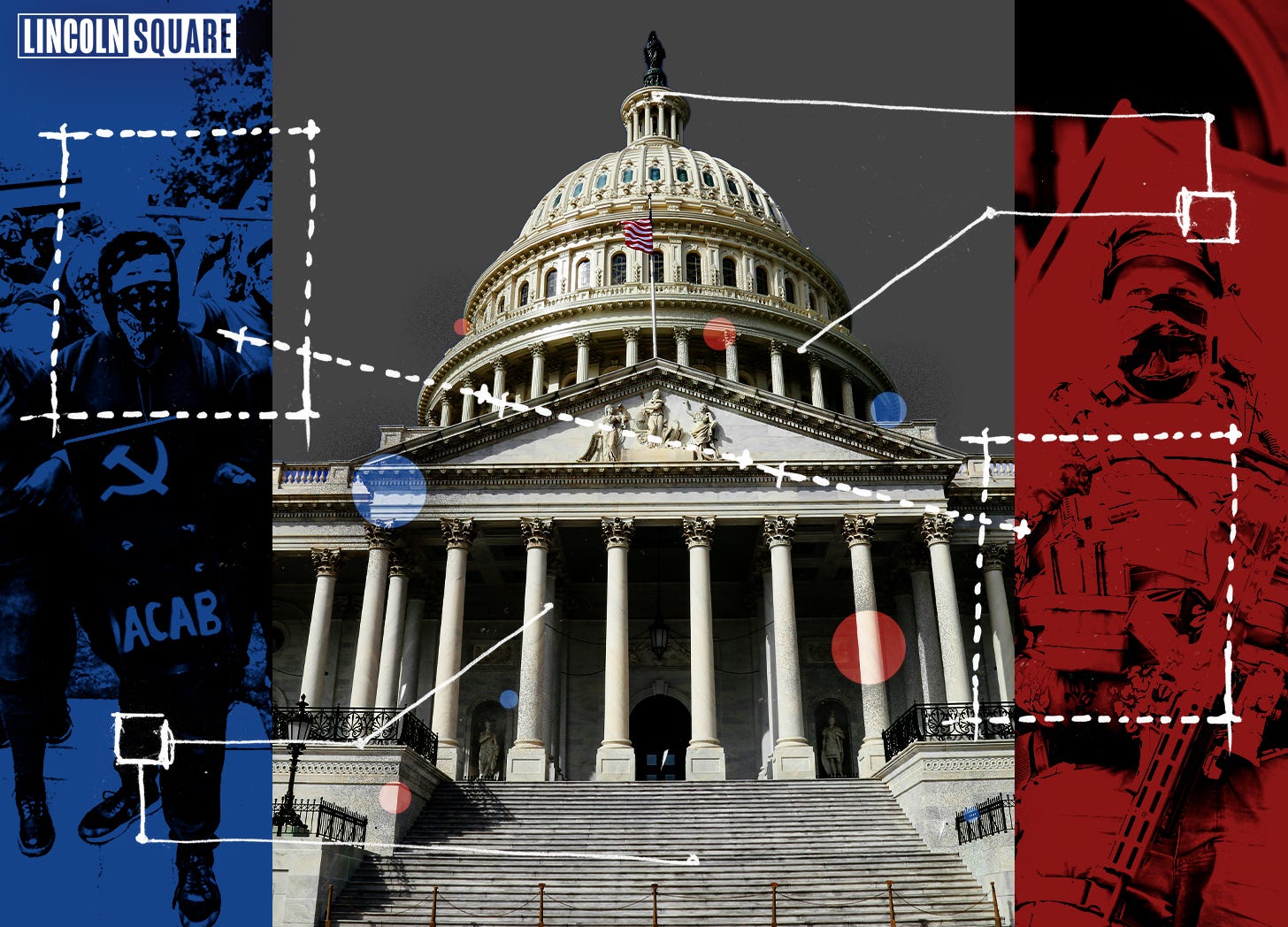The Extremes Aren’t Opposites — They’re Twins
The four psychological traits that fuel political extremism — and what they mean for our democracy now.
By Trygve Olson
If you’ve worked in politics long enough — real politics, not the podcast version — you start to see patterns. Not just in campaigns, but in people. How do they think? What drives them? And more importantly, what drives them off the deep end.
One of the biggest lies we’ve told ourselves in American politics is that the far-left and far-right are fundamentally different. They’re not. They’re twins. And if we want to save democracy, we need to understand their shared psychology — because it’s this psychology that leads people to abandon democratic norms and accept authoritarian solutions.
There’s a study I came across years ago while working with democracy activists in Eastern Europe — van Prooijen & Krouwel, 2019 — that breaks it down clearly: four core psychological traits fuel extremism. And they show up on both sides of the spectrum.
This isn’t about ideology. It’s about the mindset that turns people into true believers and movements into threats.
The Four Traits of Extremism
1. Psychological Distress → The Craving for Certainty
Extremism feeds on fear. It thrives in moments of chaos — economic collapse, cultural backlash, loss of trust in institutions. When people feel anxious or powerless, they start grasping for clarity. Extremist ideologies offer it.
Not nuance. Not compromise. Just a clear villain, a promised solution, and someone to blame.
That emotional relief is addictive — and it makes radical ideas feel like moral truth.
2. Cognitive Simplicity → A Black-and-White Worldview
Moderates live in the gray. Extremists need black and white.
Every issue becomes a purity test. Every disagreement becomes a betrayal. Every opponent becomes the enemy.
That’s why conspiracy theories spread so easily. They offer simple stories for a complicated world. They reduce every problem to good guys and bad guys. That’s the point.
3. Overconfidence → Belief Superiority
Extremists don’t just think they’re right. They think they’re righteously right — and that you’re morally broken for disagreeing.
They confuse clarity with correctness. They reject disagreement not because it’s wrong, but because it’s threatening. That’s not how democracies work — that’s how cults function.
4. Intolerance → The Death of Pluralism
Extremists don’t want a marketplace of ideas. They want an echo chamber.
Once politics becomes personal identity, disagreement becomes existential. And when that happens, dissent isn’t just unwelcome — it’s dangerous.
That’s how you get threats to school board members. That’s how you justify political violence. That’s how democracies die — not with a bang, but with a crowd cheering its collapse.
You Don’t Win Democracy Like You Win a Campaign. You Sustain It Like You Cultivate a Forest.
You may feel exhausted. That's what authoritarians want. But here's what we can do.
So What?
This isn’t just academic. It’s strategic.
If we’re serious about fighting authoritarianism — not just Trumpism, but the broader global wave of illiberalism — we need to stop pretending the threat only comes from one side. It comes from anyone who plays the zero-sum game.
Democracy is win-win. Autocracy is zero-sum. And the people who reject democratic norms — whether they call themselves left or right — are playing the same game.
That means our job, as defenders of democracy, is to build a coalition of the reasonable. That includes liberals, conservatives, independents — anyone who believes in truth, pluralism, and peaceful transitions of power.
Because in the end, it’s not about left vs. right.
It’s about democracy vs. extremism.
Faith vs. fear.
Freedom vs. control.
And we’d better choose wisely — because extremists already have.
What Can You Do About It — Today?
This isn’t just theory. This is tactical.
1. Watch for the Black-and-White Trap
If you catch yourself thinking “my side is always right, the other side is evil” — stop. That’s not moral clarity. That’s cognitive simplicity, and it’s exactly how extremism pulls people in.
Democracy demands complexity. Hold it. Live in it. Reject the simplicity that leads people to dehumanize others.
2. Expose the Dissonance
You don’t defeat extremism by yelling facts at people. You do it by helping them see the contradictions between their values and their politics.
If someone claims to love freedom, ask why they’re supporting candidates who attack the press or restrict speech. If they care about faith, ask how cruelty to immigrants or political vengeance aligns with that.
Help them feel the gap. That’s where the shift can start.
3. Trade Shame for Seeds
You will never shame someone out of their beliefs. Not long-term. What you can do is plant a seed.
Speak with conviction; not contempt. Stand firm in your values, but remember: real change happens when people start to feel the weight of their own contradictions — not yours.
Let them come to their own shame, in their own time. Your job is to give them the path back.






There is a difference though. Maybe not so much between individuals but society and our politics more broadly.
Part of the role of society and politics is to manage the extremes. The right had utterly failed at it. The left has possibly gone too far in keeping outside views away from power. But it is broader than the right in viewpoints and represents a functional political movement.
So at the level of individuals maybe you are right. At the level of the whole of society, your view distorts rather than clarifies.
This is an article that needed to be written. Thank you! I see myself in some of the self-righteous people you described. It really hit me, as I realized that the best way to help others understand is not by using force, but by accepting where they are at this moment and reaching out a hand anyway. This is a keeper for sure.